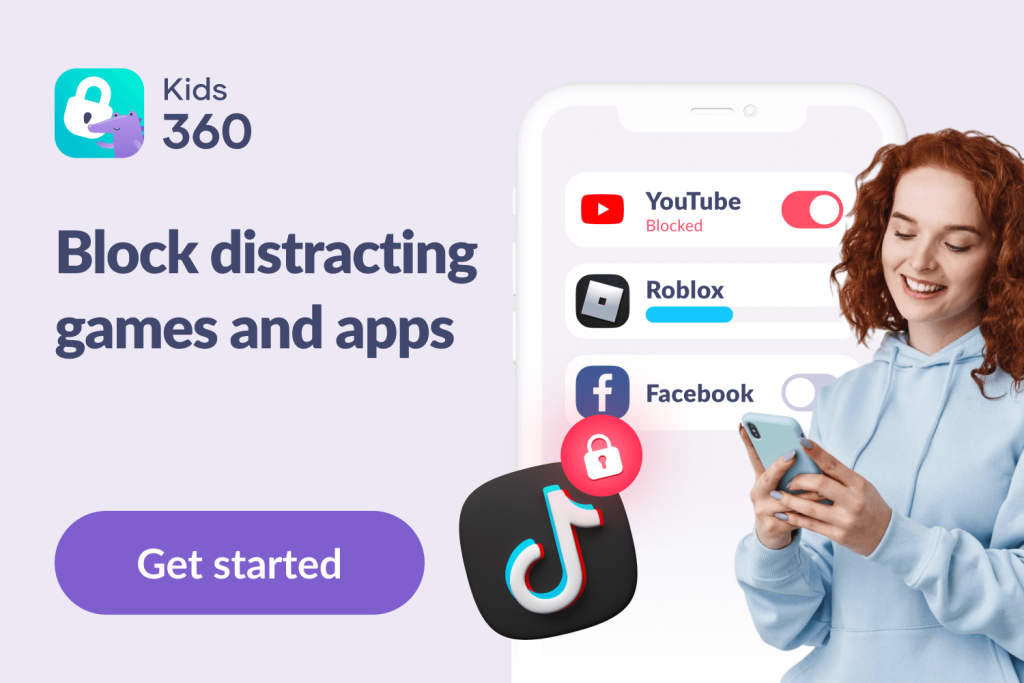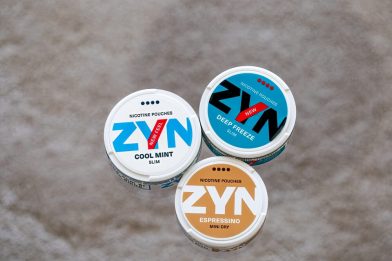Social Media Is Toxic: How to Protect Your Kids from It
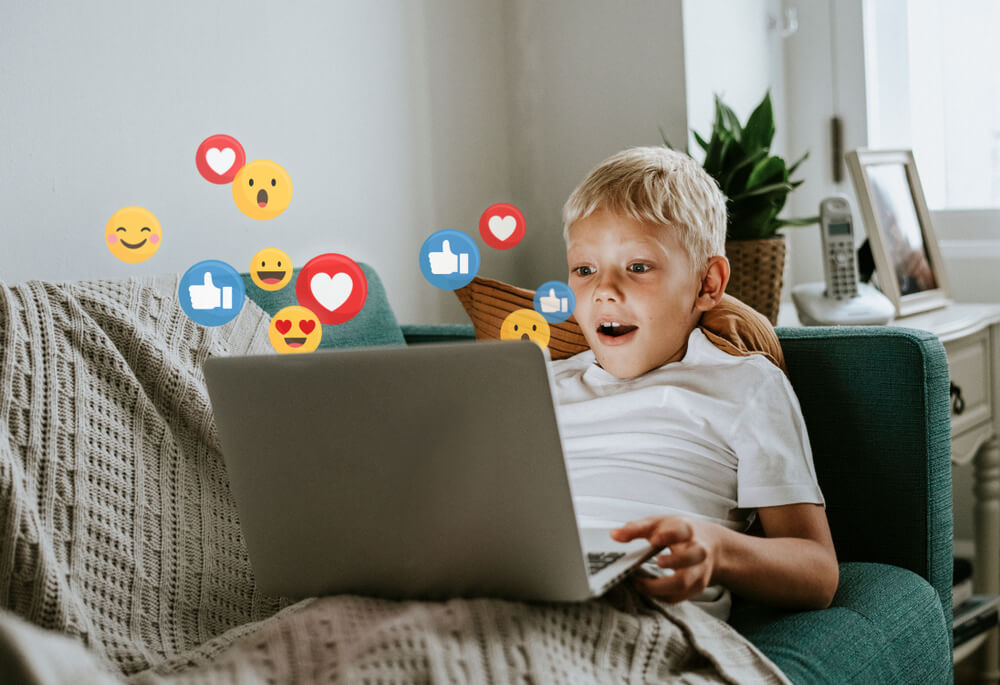
At its essence, social media seems like a positive thing, but an increasing number of people now claim that social media is toxic. It serves to stay in touch with friends, save and post photos from different events, exchange opinions, and so on. The truth is entirely different, and social media is filled with harmful and sensitive content, especially for children.
From insults in the comment sections to spreading misinformation and predators lurking behind fake accounts, social media is toxic and filled with threats to kids. What can parents do, and is there a way to protect children online? Is there a right way of using social networks?
The guide below helps you understand the toxicity of social media. That ranges from current social trends, the most dangerous networks, and why you should be careful of the influencers. We also provide tips on how to mitigate risks associated with toxic content and prevent social media from affecting your child’s mental health negatively!
Contents:
- Social Media Is Toxic—What Does That Mean?
- 5 Most Toxic Social Media Networks
- Toxic Social Media Trends
- 5 Tips to Avoid the Negative Side Effects of Social Media
- FAQs
Social Media Is Toxic—What Does That Mean?
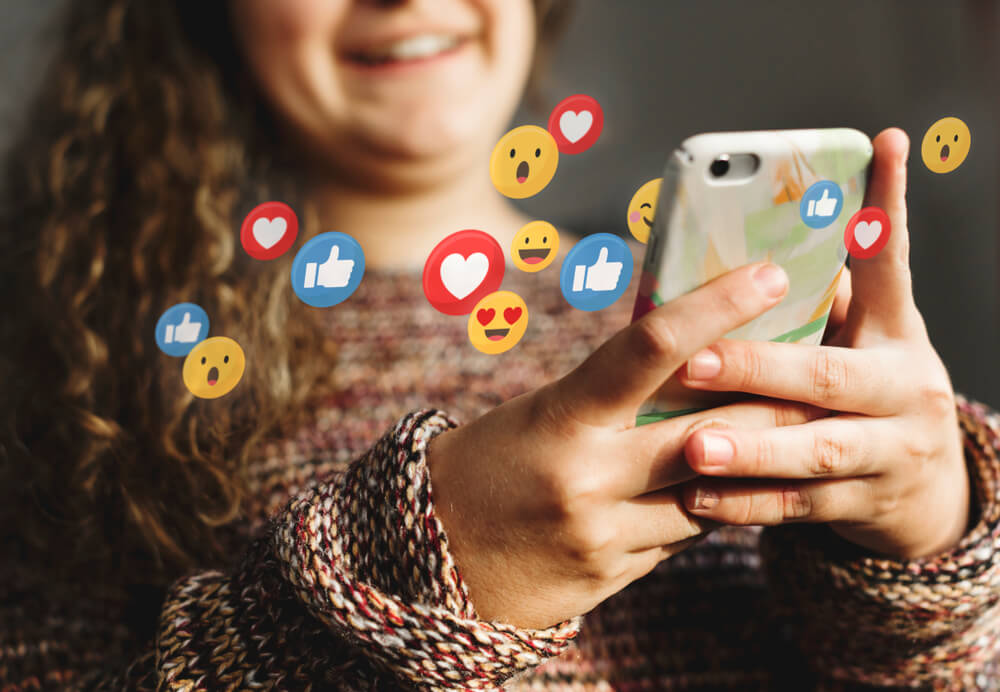
Rawpixel.com/Shutterstock.com
A toxin is a substance poisonous to our health, but why do we say that about social media? It’s because these platforms can harm us, both physically and mentally. But why is social media so toxic for children?
If you spend too much time online, you have less time to live your life. Apart from becoming sedentary, which is a risk of weight gain, social networks could also lead to anxiety and depression.
How Does Toxic Social Media Affect Your Kids?
Here are a few examples that could happen on a social platform:
- Seeing a photo or video portraying a violent or otherwise harmful scene. Nobody should watch content that could be harmful to their mental health, especially kids.
- Experiencing cyberbullying. Cyberbullying includes sending negative and insulting messages or posting harmful content about someone on social media. Kids playing multiplayer games often face criticism from other players, which undermines their confidence.
- Sharing too much and not protecting their account well. Even if a child sends private information or a photo to the inbox of another user, that doesn’t mean they won’t publish the image sooner or later. And there’s the risk of someone breaching the child’s account or them staying logged in at a public location.
according to research from the Pew Research Center, there’s even more to worry about than toxic content, however. Many people are also very concerned about the spread of misinformation via these platforms. This is evidenced by a number of recent high-profile content controversiality cases, where seemingly authentic news reports or videos have been proved to be false.
There is also the worry about what social media platforms do with user data, which could pose major privacy issues. As machine learning becomes more sophisticated, it becomes harder for users to limit their time on these platforms, which now know exactly the type of content to display to each individual user to keep them scrolling. Integrated recommendation systems allow social media platforms to continually present users with the content it thinks they’ll be interested in to prevent them from clicking away or putting down their screens.
Are Social Media Influencers Toxic?
An influencer is a new term that describes someone who sets trends on social media. These are popular users who usually have hundreds of thousands of followers. Some specialize in certain niches, such as gaming or fashion, while others don’t have a specific interest.
Why are influencers and their content toxic? Here are some crucial considerations on how people who follow influencers are affected:
- Doubting your self-appearance. An influencer promoting fitness products usually looks great, with toned muscles and rock-hard abs. A kid might follow them to adopt healthier habits and improve their appearance. However, seeing the influencer’s perfection makes the child have a negative image of their current body, which ruins confidence and is a risk factor for depression.
- Influencers distort reality. They can’t let their followers or society think they have pimples or other flaws. They adjust their posts with filters and manipulate photos to make their physical characteristics better. That leaves others insecure about imperfections, motivating them to hide them, which further distorts reality.
- Wanting to be famous. Many kids dream of becoming influencers. After they post something on social media, they monitor likes and comments. It’s not only the desire to be famous but the desire to receive validation from others instead of wanting to live our own lives.
- Influencers are businesspeople. Most influencers have partnerships with certain brands, and many try to hide their sponsorships to make promotions more authentic. They aren’t socializing because they care about their followers, but as a way to earn money or jump on the back of trending topics.
5 Most Toxic Social Media Networks

Ground Picture/Shutterstock.com
The answer to the ‘is social media toxic’ question is always yes, but if your plan is to order the networks by toxicity, it depends on your parameters. It’s worth being aware that, even where content moderation is in place, this is never fool-proof, and content promoting online toxicity or that is otherwise harmful can always slip through the net. Before letting your kids use them, here’s the basic explanation of the most toxic social platforms!
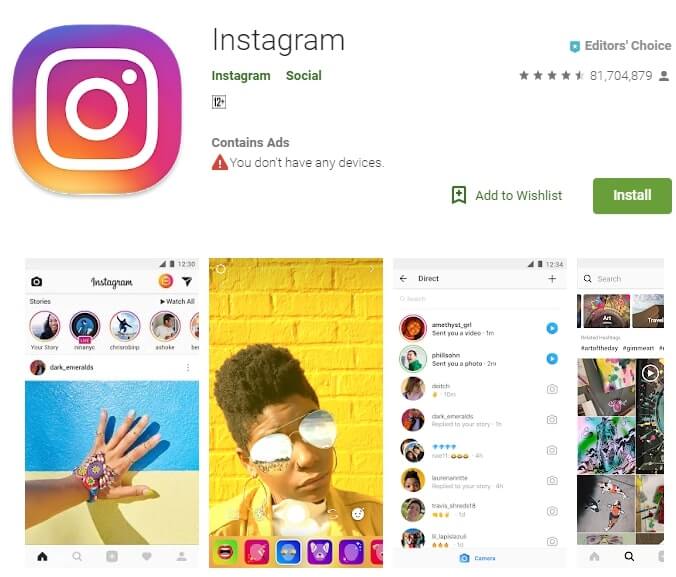
Instagram is the most popular social media at this moment, and that’s the reason why it’s topping our list. As its focus is on photos and videos, Instagram is loaded with filtered content and posts that show people enjoying themselves. Whether it’s celebrities or their friends, that could compromise a child’s self-esteem or expose them to toxic content.
Snapchat

Snapchat is a social network that focuses on private image and video sharing. The problem is that this comes with the risk of sharing harmful content. From sexually explicit photos to other negative videos, it’s easy for kids to encounter content that could affect their mental health. From a parent’s perspective, it seems smartest not to allow your kid to use this social network.
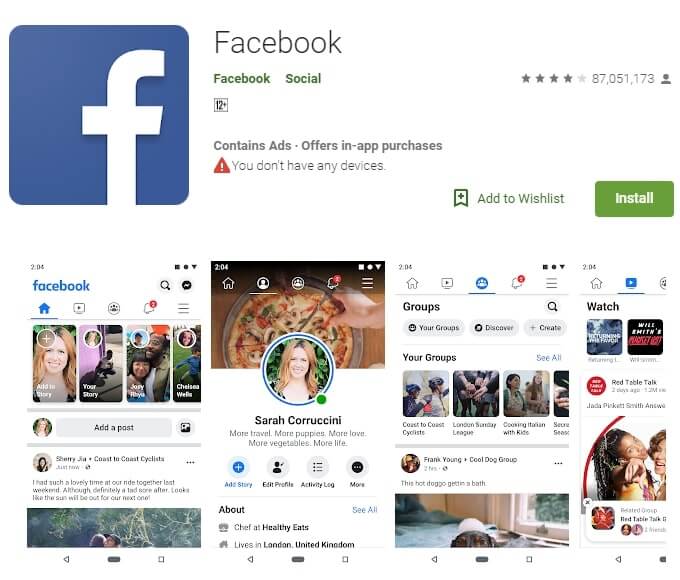
Facebook was the one social network to dominate the scene during the 2000s. Today, it still has billions of users worldwide who form a vast digital community. Online predators often use it to create fake accounts and lure children by messaging them regularly and establishing a relationship before asking for a real-time meet-up. Posting misinformation and spreading false news is another reason why this platform can be toxic for its users.
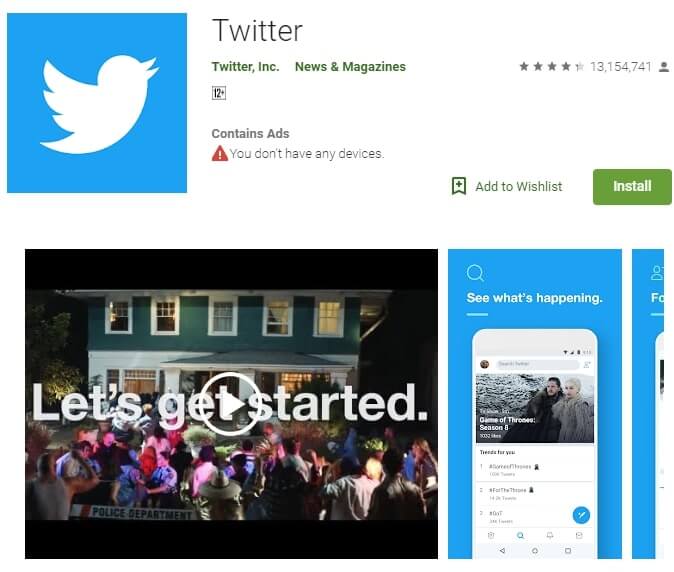
Some reports put Twitter at the top spot of the most toxic apps since it has the highest number of trolls, and others say there’s too much spam and toxic content on this network. It’s sometimes hard to recognize misinformation from accurate data on Twitter, even for adults, let alone children. The reason it doesn’t top our list is that it isn’t popular among kids and teenagers like the previous alternatives.
TikTok
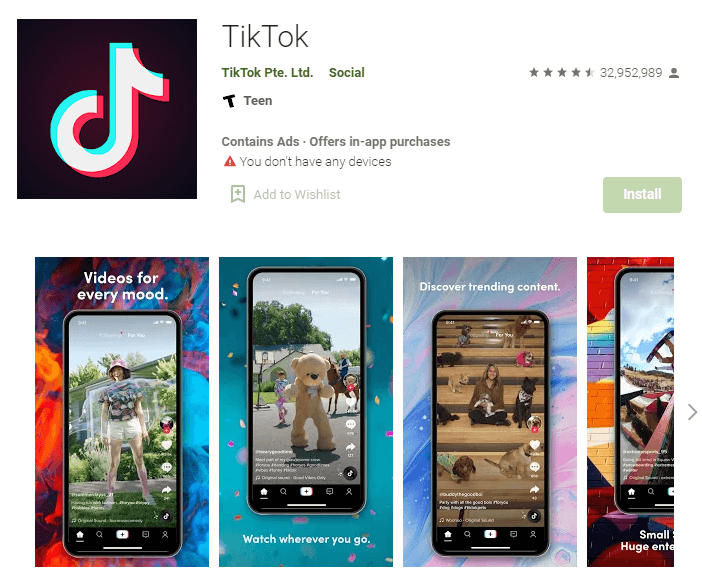
TikTok is a relatively new social media threatening to become the next industry leader. Its online communities focus on videos, and you’ll often find many challenges. Unfortunately, many of them are dangerous. In the past couple of years, several children throughout the US have died because they tried the blackout challenge.
Read also Top 10 Adult Social Media Platforms Parents Should Know.
Toxic Social Media Trends
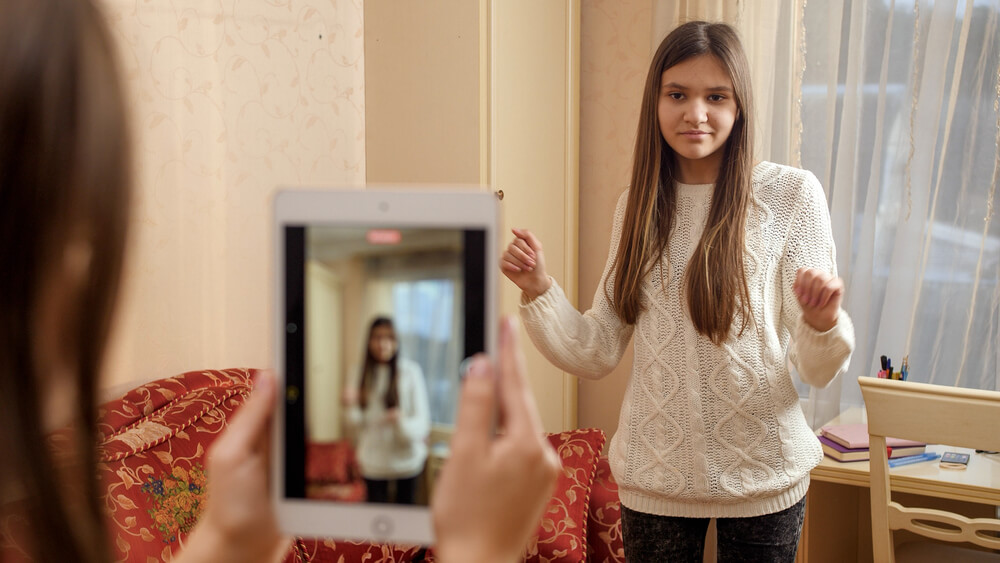
kryzhov/Shutterstock.com
A social medium could make a thing viral in a matter of minutes. Trends are always changing, but here are some that could affect your kid’s mental health:
- Cancel culture. If anyone does something that’s considered inappropriate, this trend involves publicly calling them out on social media.
- Unreal beauty standards. On social media, people look much better than in real life, especially influencers and celebrities. You’ll even notice that prioritizing physical looks over working on the mental aspect has become a trend.
- Crying for attention and filming yourself helping someone. Some influencers go live and cry in these broadcasts. Other users post sad news, looking for others to feel pity for them. Others go a step further and post videos helping others in need, so others can discuss this socially.
- Dangerous pranks. These trends are particularly noticeable on TikTok. Placing firecrackers in someone’s purse or eating cosmetic formulas for fun could have severe consequences.
- Doxing. It’s when someone publishes private information about another person with the intention to harm their reputation. This can get nasty if sensitive photos or other problematic content reach the public, as it could have a long-term negative effect on the victim’s mental health.
5 Tips to Avoid the Negative Side Effects of Social Media
In the era of technology, it’s hard to ban your kid from using a smartphone. Most children are using mobile phones, so not having one can have a negative effect on the child’s mental health, too. But as a parent, you feel you must do something to reduce the social media threats and side effects on your kid. Here are some tips on how to achieve that goal!
Use the Kids360 Parental Control App
Parental control apps allow you to monitor and adjust the functionality of your kid’s smartphone from another device. Kids360 works on Android and iOS operating systems, and thanks to multiple device support, it’s great if you have more than one child.
Kids360 can lock apps that you find dangerous. That means you can prevent your kid from accessing social media apps, but also games you believe are unsuitable for their age. Alternatively, you can set daily limits and adjust how long they can use an app daily.
Thanks to timetables, you can allow access to specific apps only during specific timeframes. That ensures your kid will focus on school during classes or when doing homework. Kids360 is a freemium app, so you can use its basic features for free.
Turn Off Notifications on Your Child’s Phone
There’s something called the fear of missing out. Children think something important might happen on social media, or they are constantly refreshing for updates from a particular person or event. Before you know it, they become hooked and don’t take their mobile phones out of their hands.
It will require some self-control from your kids, but try to explain the benefits of turning off notifications. That includes eliminating distractions, especially when they are doing homework or are engaged in other activities. Most of the time, notifications are about random comments on Facebook, and they are not worth distracting your kid from the current activity.
Related: 17 Negative & Positive Effects of Technology on Children and How to Overcome Them.
Use Parental Mediation
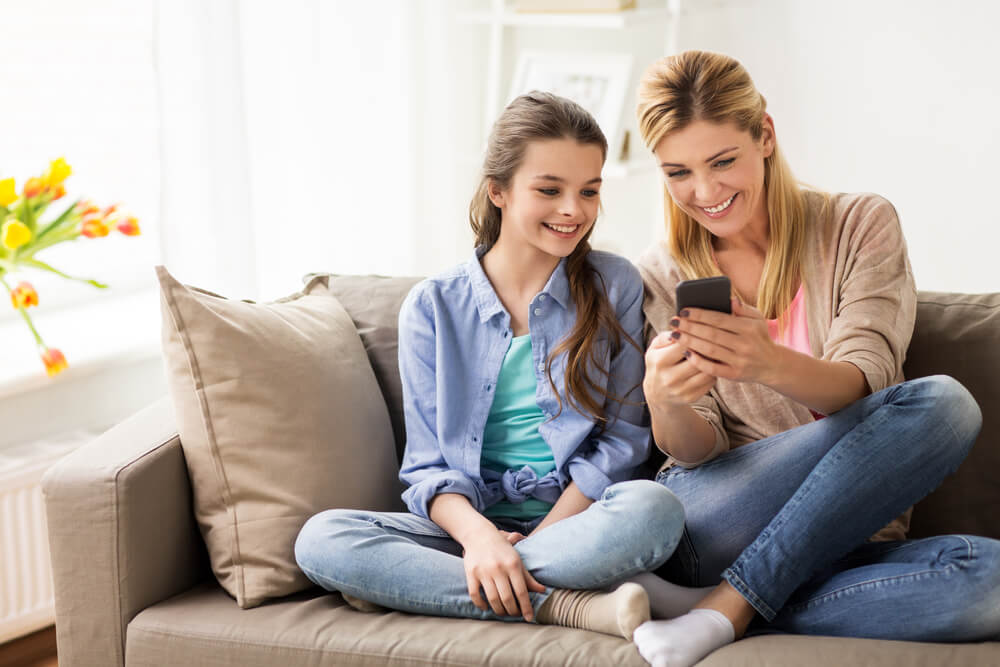
Ground Picture/Shutterstock.com
There’s something that’s called parental mediation. The idea is to accomplish a healthy relationship between children and social media. You can mediate in an active or restrictive manner, and it’s often best to combine the two.
Active mediation includes discussing anything that kids might have encountered on social media. Your goal is to offer more information on the proper use of these platforms. That often goes hand in hand with co-use, where you are present when your kid uses social media. Restrictive mediation is when you prevent kids from accessing certain social networks or options available on these sites.
Using Social Media Positively
If kids use social media in a positive manner, that might reduce the risk of being exposed to negative content. Here are some tips on how to use social media better:
- Focus on connecting with loved ones and close friends. Don’t communicate or read pages with comments from random people since they could contain content that can compromise mental health.
- Stay away from negative content. These could be posts where kids gossip or share negative information about other individuals or demeaning messages with elements of cyberbullying. Ignore all this content and make sure your kid doesn’t comment negatively online.
- Be real when posting online. Apart from focusing on posting positive things, such as celebrating a birthday, it’s important for children to be real on social media. That means not gossiping, discussing failed relationships, or posting over-filtered photos.
Read also Safe Social Media Apps for Kids.
Adjust Privacy Features and Monitor Your Kid’s Friends
Explain why your kid should keep their profile private on social media. It decreases the risk of anyone abusing their photos and predators learning more information about their lives.
You should also be careful about friends and followers that your child adds on social media. Until they reach their teen years, it’s best to consult with you before adding new friends. Try to teach them how to recognize fake accounts and pinpoint why they shouldn’t add people they don’t know.
There’s also—potentially—hope on the horizon in the form of toxic language detection tools, which social media platforms could use in the near future. These tools will likely deploy a range of classification methods to identify, for example, toxic comments.
It Takes Effort, but Parents Can Prevent Kids from Toxic Social Media
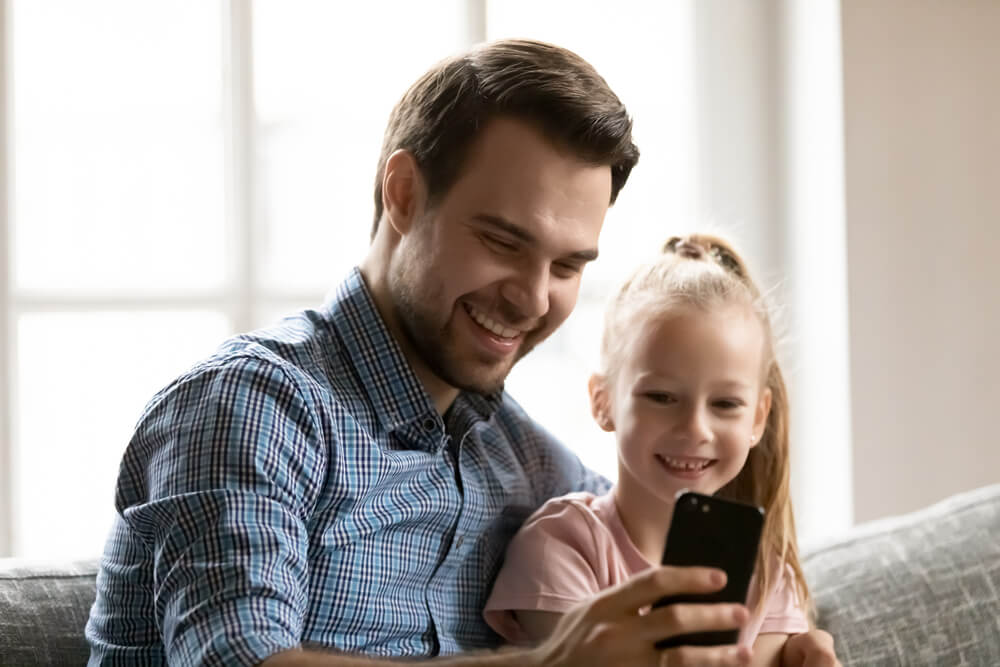
fizkes/Shutterstock.com
Parents must be ready to actively engage in trying to keep their kids’ use of social media positive and free from toxicity. While children are small, it’s best to prevent access to social networks.
Once they reach their teen years or you consider they are ready, you can help them register for an account and try these platforms. Let your kid use these apps on their own only when you feel you have covered the important aspects and they have proved they can use social networks responsibly. And don’t forget you have beneficial apps, such as parental control tools to adjust time limits and prevent them from harming their mental health by spending too much time online.
FAQs
What is so toxic about social media?
There are many ways that social media can be toxic. These include proliferating unreal beauty standards and unhealthy social comparisons, acting as forums for cyberbullying and toxic content, and the possibility of addiction, where users spend an increasing amount of spare time on these platforms.
Why is social media so harmful?
Social media platforms are harmful as they may promote online toxicity, incorporate toxic content (such as that which is misogynistic), and add to social pressures.
What are the 5 dangers of social media?
Key dangers of social media are that these platforms may promote cancel culture and unreal beauty standards, and create forums where users feel a continual pressure to gain attention and social endorsement in the form of likes and an increasing following list. Social media platforms have also facilitated dangerous trends, such as increasingly extreme pranks and doxing, which involves sharing someone’s private information online (such as a person’s home address) without their consent.
Is social media toxic for mental health?
Social media can be extremely harmful for mental health, causing or aggravating anxiety, depression, and low self-esteem, and even bringing about behavioral changes. Furthermore, excessive screen time contributes to increased exposure to blue light, which can negatively impact sleep.
Read also:
- Is Sendit Anonymous? What Parents Need to Know to Keep Kids Safe
- Is Reddit Safe? How to Protect Kids from Viruses, Hackers, and Cyberbullying
The picture on the front page: Rawpixel.com/Shutterstock.com
Проверьте электронный ящик














